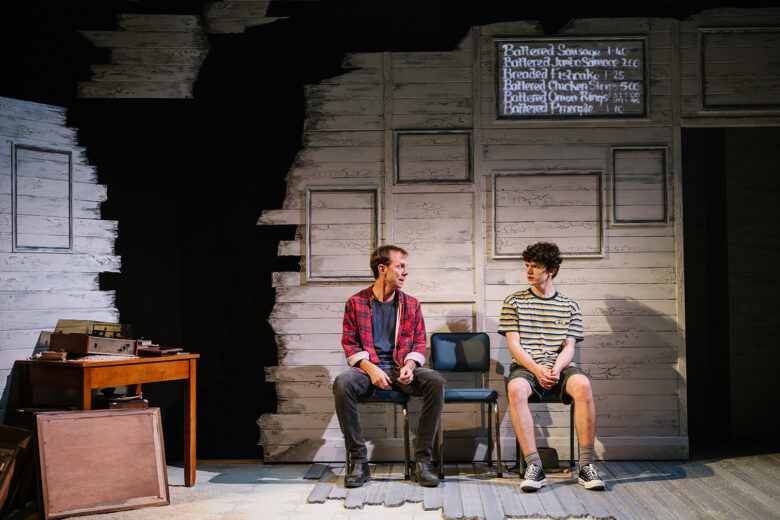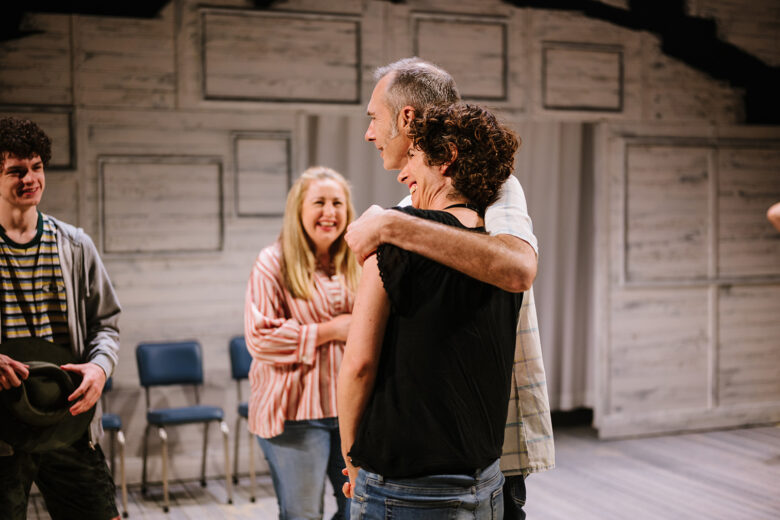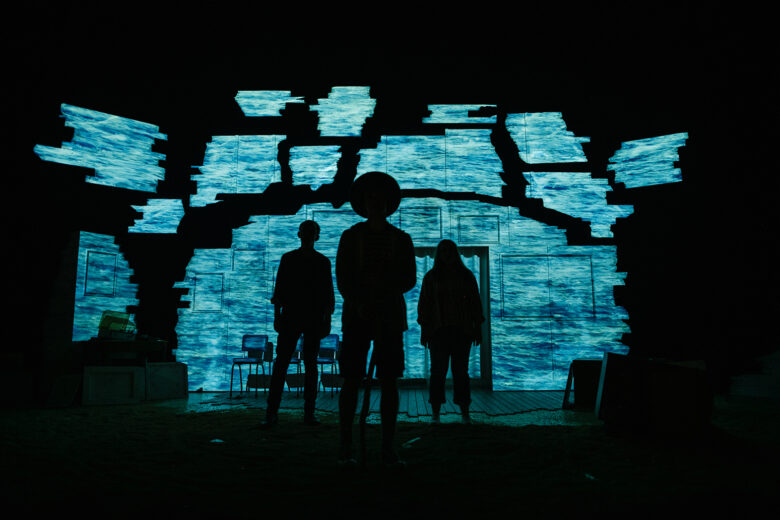David Megarrity reflects on his QPDA experience

David is a writer, composer, musician, performer and academic — creating at the intersection of music, performance and projected image. His play The Holidays won the Queensland Premier’s Drama Award 2018–19 and made its world premiere in Queensland Theatre’s 2020 Season. David was previously a finalist in the 2012–13 Award for The Empty City.
How has winning the Queensland Premier’s Drama Award changed your writing or your career?
Playwrights reading this will know how much writing is done for free, in time snatched from, or squeezed in between other things. Being a finalist, and then a winner has meant I’ve been able to set aside periods of time when I’ve been paid to write, which has allowed me to dive deeper into how I write what I write. That’s had a lasting effect.
Working independently as a theatre maker can confine your playwriting to what’s probably achievable on a shoestring — I’m fond of the innovation those constraints bring about — but the potential for the work to be produced with more resources allows you to scale up your vision.
The Queensland Premier’s Drama Award gave me some freedom to put together and work with a dream team of Brisbane artists, and allowed it to be shared with larger audiences than a work of mine has had before.
The reviews were great, and that helps to ensure the play makes its mark. More importantly, once it’s done, the work comes back to you through the conversations with all sorts of people who want to tell you how the play moved them. I really like that. It’s beyond me.

What was it about your story that convinced you the work had to be performed on a stage – as opposed to a film, or podcast, radio play, novel etc?
Well before I entered it in the Award, The Holidays took a quite long time to find its form — I’m talking around 10 years — I experimented with writing it for the screen and even as a novel. The concept documents for the TV idea didn’t respond to narrative formulae and tended to involve stage-style solves. The manuscript for the novel was filled with dialogue, and seemed to want to dwell in the action of particular scenes rather than cut away. All these attempts helped build the world of The Holidays, but finally it was clear that the particular combination of artforms I was designing needed to happen in a theatre. I’d chased composed theatre through previous works on a smaller scale, and it was clear that the way it was driving The Holidays needed an audience’s imaginations to help unfold it, live in time.
If you’re thinking of submitting that screenplay, radio play, podcast or manuscript for a novel to the Queensland Premier’s Drama Award… don’t. A competitive screenplay competition wouldn’t accept a play script, or novel, so don’t submit something in the wrong form to a playwriting competition.
As a finalist and then as a winner, what was the creative development process like for you?
What you provide as the playwright has to be robust, but it can’t be inflexible or resistant to growth or pruning. The vision for the performance becomes a shared one, and as experts bring themselves to it, the possible becomes probable. If you’re ready to do the actual work involved, it can open up and deepen the artistic work.
Even the basics of creative development are of value – things like play readings, and discussions of how your co-creatives interpret the work can be folded back into the writing. It’s tricky to start naming names, because the whole team brought themselves to it, but the director is key. The way Bridget Boyle ring-fenced a creative, nurturing space and nimbly hopped from the technical to the conceptual to the intimate work with actors was a marvel to watch.
Working with a dramaturg can help you find new connections, surface ones you hadn’t noticed, and distill things down to an essence. As finalists we could tailor the cycles of creative development the Award enabled to each piece. This allowed us to experiment with and prove concepts like the particular patterns of music, screen and live performance the script required, as well as confirming that we needed a young person to play a young person.
Our process was experimental and playful, but the same time, there’s no mucking around: your job as a writer is to make the script work, by deadline. If you’re not up for that, don’t enter the Queensland Premier’s Drama Award.

Was there anything about the rehearsal/production process or working with a major theatre company that surprised you?
You might think a state theatre company would be a fairly stuffy and resistant to things that are a bit unusual, like the things I like to write, but both times I’ve been a finalist I found Queensland Theatre responsive to the ideas myself and the team had for the development of the script. The Empty City involved a public play reading of a script with no words in it.
Anyone who’s put on their own play knows how hard it can be to gather an audience – the Company’s experience in marketing and publicity meant that lots of people came to The Holidays. While I’m not famous (and I don’t want to be) boarding a bus that has an advertisement for your play on it captures the pure glamour of playwriting perfectly.
Others may be spreading the word, but at the same time, this means you, as writer, need to be prepared to talk about the work – sometimes the writing around a play can be just as important as the writing in it. As a playwright, it’s your job to speak about the work to all sorts of people, and that takes time and thought. This begins with your application to the Queensland Premier’s Drama Award, which asks things like what inspired your play, and why it’ll be of importance to Queensland audiences.
What advice would you give yourself if you were to start your Queensland Premier’s Drama Award experience over again?
‘Now’ me would say to ‘then me:
• You aren’t wasting your time trying out the idea in different forms – it’ll just make you surer its final iteration should be live performance.
• The knockbacks the earlier versions of the playscript got made it stronger, because you kept working on it.
• All those early mornings you spent building the first draft are worth it — the play won’t write itself — but like Craig David says, ‘walking away’ from an idea for a while can actually be very productive.
• The experiments you’re already doing in your independent practice will find their way into The Holidays and your instinct that the Brisbane colleagues you’re working with right now should help you make this future play… is spot on.
• The playlist you made of ambient piano and Oz rock really is getting you in the right headspace to write the play.
• What if the words were all that was left?

—
You can find the script for The Holidays at Playlab Theatre and can read more about David’s experience of the Queensland Premier’s Drama Award on his blog, lifeinthelongtail.
Entries for the Queensland Premier’s Drama Award 2022–23 close on 3 September 2021.



